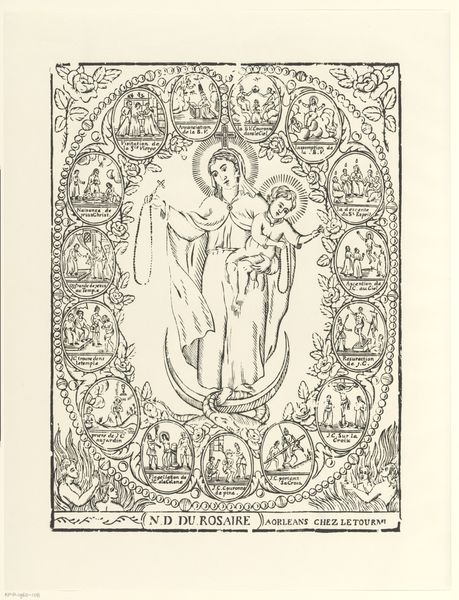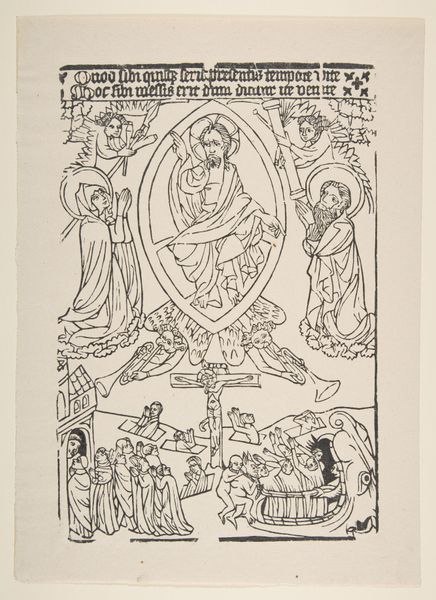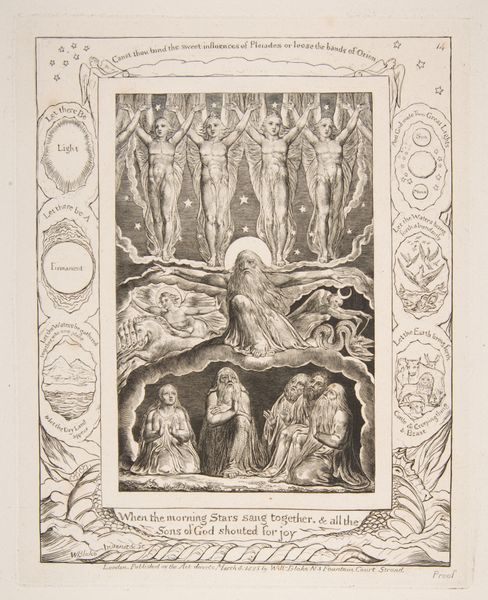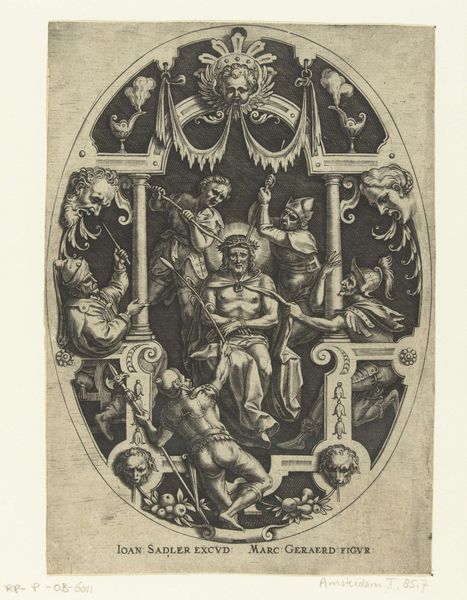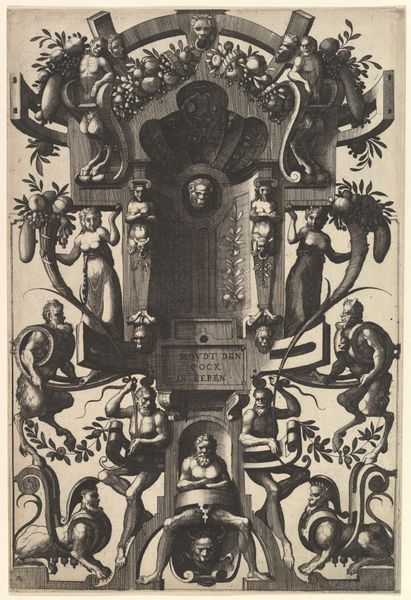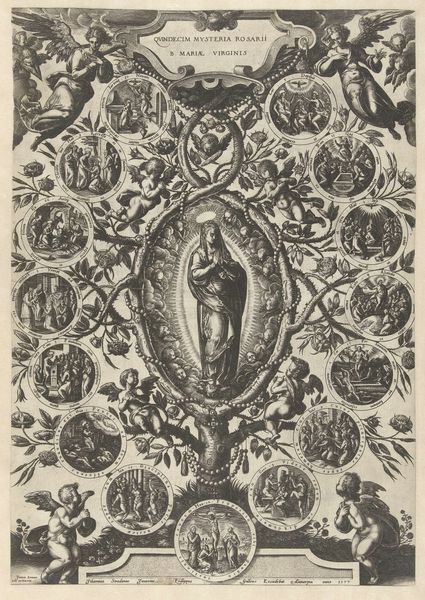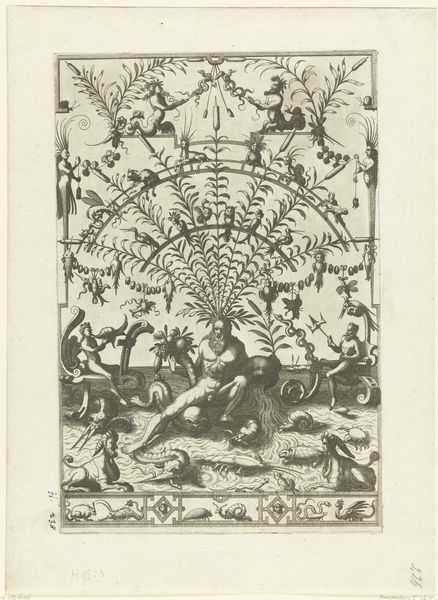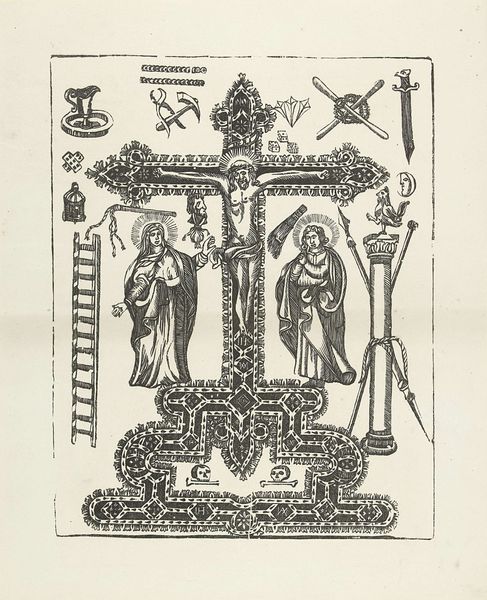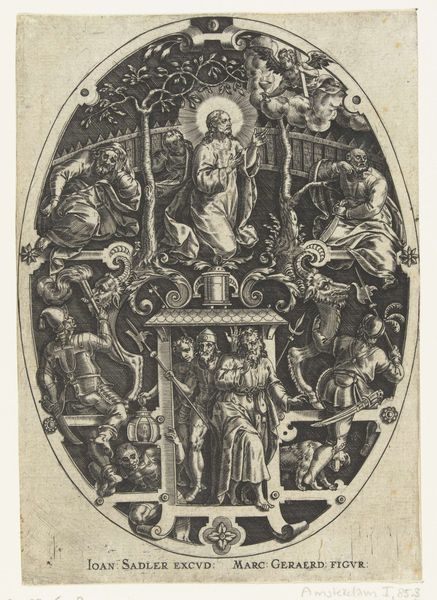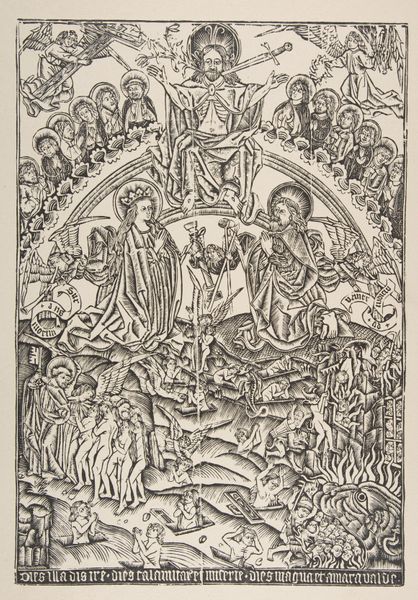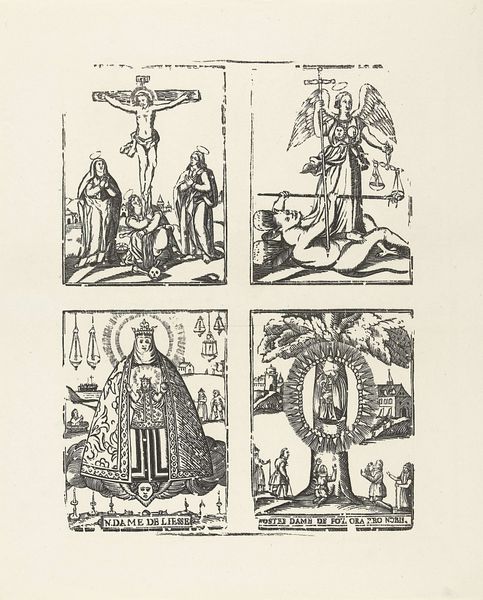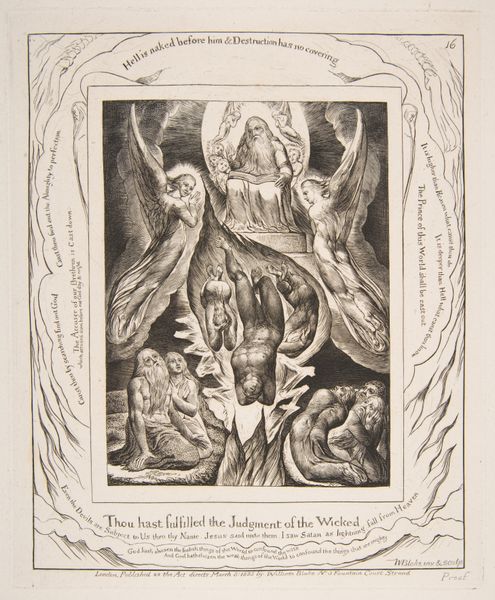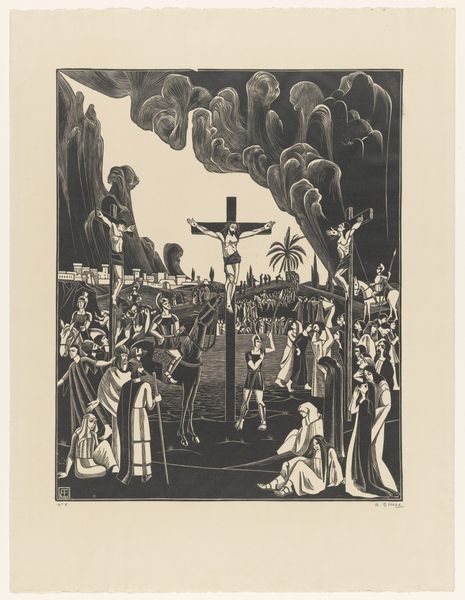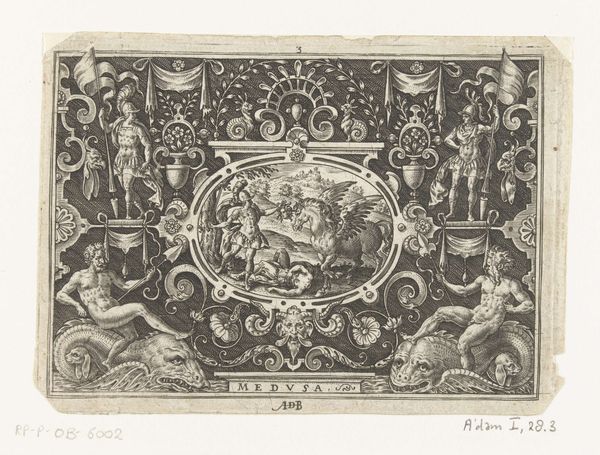
print, woodcut, engraving
#
medieval
#
narrative-art
# print
#
old engraving style
#
figuration
#
woodcut
#
line
#
engraving
Dimensions: height 447 mm, width 363 mm
Copyright: Rijks Museum: Open Domain
Editor: This woodcut print, "Onze-Lieve-Vrouw van de Heilige Rozenkrans," or Our Lady of the Holy Rosary, is at the Rijksmuseum and is dated sometime between 1700 and 1865, which is quite a broad range! The image strikes me as a complex layering of religious iconography. How do you interpret this work? Curator: I see a fascinating consolidation of visual symbols meant to evoke collective memory. The central image of Mary and the Christ child, surrounded by the Rosary beads depicting scenes from Christ’s life, anchors the viewer in familiar Christian narratives. The kneeling figures below offer roses. Editor: Yes, what do the roses and figures signify? Curator: They act as intercessors and represent devotion. The rose itself, deeply connected to Mary, symbolizes love, beauty, and martyrdom, all essential themes within Marian devotion. Don't you feel as though the figures' posture evokes both humility and reverence, connecting the earthly realm to the divine? Editor: Absolutely! So, is the rosary functioning as a historical narrative and spiritual tool? Curator: Precisely. Each bead, each image, recalls a specific moment and invites meditation, transforming the act of prayer into a visual journey through faith. Editor: That's a perspective I hadn't considered fully. I was focused on the "old engraving style," as the AI tags call it, but that's not the complete picture. It’s incredible to think how a single image can condense so much cultural meaning! Curator: Indeed, it demonstrates the power of visual language to shape and reinforce shared beliefs across time. It also speaks volumes about how humans interact with the divine through tangible symbols.
Comments
No comments
Be the first to comment and join the conversation on the ultimate creative platform.
